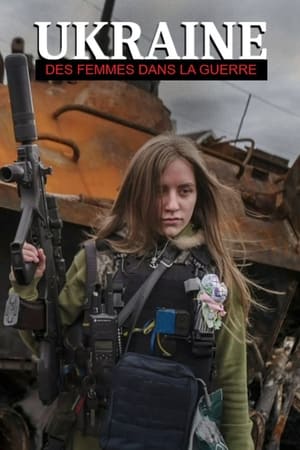

Kadyrova's palianytsia(2022)
The artists Zhanna Kadyrova and Denys Ruban spent two weeks in the basement of their house, fleeing from the rocket attacks and sabotage groups of the occupiers that were flooding the outskirts of Kyiv at the time, and then decided to evacuate to western Ukraine. Local residents of one of the Zakarpattia villages sheltered them in a picturesque house on a hillside, next to a river. Doing what you know and love for the benefit of Ukraine is the best thing an artist can do in times of war. This is how the Palianytsia project was born - a series of objects made of stones cut by a mountain river. Zhanna sells them to patrons and galleries and uses the proceeds to buy bulletproof vests, radios, thermal imagers and other things our soldiers need. Before she sends her ‘loaves’ to Venice for the Biennale, Zhanna holds an exhibition in the village where she now lives, so that the people who have taken her in can be the first to see her art.

Movie: Kadyrova's palianytsia

Кадирівська паляниця
HomePage
Overview
The artists Zhanna Kadyrova and Denys Ruban spent two weeks in the basement of their house, fleeing from the rocket attacks and sabotage groups of the occupiers that were flooding the outskirts of Kyiv at the time, and then decided to evacuate to western Ukraine. Local residents of one of the Zakarpattia villages sheltered them in a picturesque house on a hillside, next to a river. Doing what you know and love for the benefit of Ukraine is the best thing an artist can do in times of war. This is how the Palianytsia project was born - a series of objects made of stones cut by a mountain river. Zhanna sells them to patrons and galleries and uses the proceeds to buy bulletproof vests, radios, thermal imagers and other things our soldiers need. Before she sends her ‘loaves’ to Venice for the Biennale, Zhanna holds an exhibition in the village where she now lives, so that the people who have taken her in can be the first to see her art.
Release Date
2022-05-08
Average
0
Rating:
0.0 startsTagline
Genres
Languages:
УкраїнськийKeywords
Similar Movies
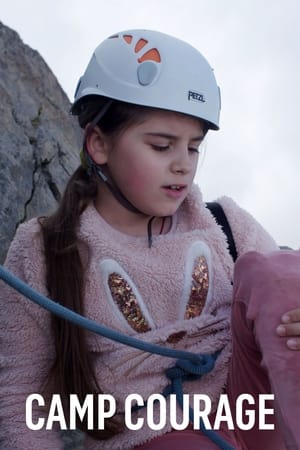 7.4
7.4Camp Courage(en)
Made refugees by the war in Ukraine, Olga and her granddaughter Milana travel to a summer camp in the Austrian Alps to test the limits of their own bravery, and to strengthen their growing bond.
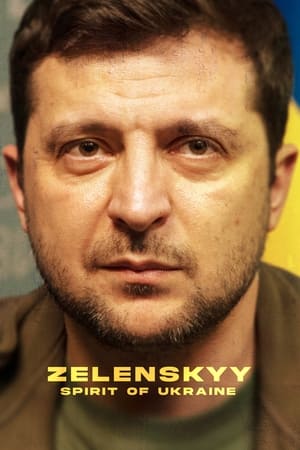 0.0
0.0Zelenskyy: Spirit of Ukraine(en)
On February 24th, 2022, Russia launched a full-scale invasion of Ukraine. The war has since killed thousands, displaced millions and destroyed entire cities. Despite international appeals for Volodymyr Zelensky, and his family, to be evacuated to a safe location during the opening days of the invasion, the 44-year-old president stayed in Kyiv with his defence forces. It's hard to imagine how this bright, comedic, family man, has ended up in one of the most dangerous positions in the world, with a giant target on his back. 10 months on, and still fighting from the ground, Zelensky has been named TIME Person of the Year 2022. With comparisons to Winston Churchill, as a war time leader, his impact is undeniable. Utilising his acting skills he is embodying everything it means to have the spirit of Ukraine.
 8.0
8.0Maidan(uk)
A chronicle of the civil uprising against the regime of Ukrainian president Viktor Yanukovych that took place in Kyiv in the winter of 2013/14. The film follows the progress of the revolution: from peaceful rallies, half a million strong in the Maidan square, to the bloody street battles between protesters and riot police.
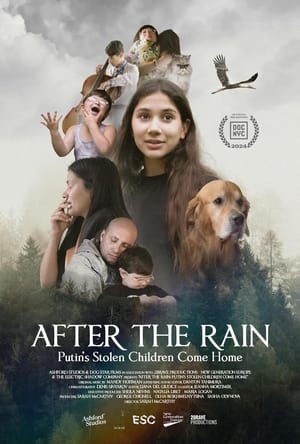 0.0
0.0After the Rain: Putin's Stolen Children Come Home(en)
Deep in a forest by the Baltic Sea, a group of Ukrainian families come together to start the healing process with the help of golden retrievers and palamino horses at an animal therapy retreat. In the safety of the forest, the children’s memories of being illegally deported to Russia and their families’ struggles to rescue them are unraveled with the help of skilled and sensitive counsellors. The joy and humour the children discover during their time in the forest make it easy to forget that their stories are the reason the International Criminal Court recently issued an arrest warrant for Vladimir Putin. Nearly 20,000 abducted children remain in Russian institutions.
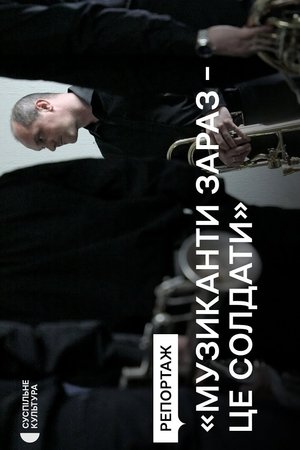 0.0
0.0Fighting with music: the history of the Luhansk Philharmonic Orchestra(uk)
Gathering together dozens of his musicians, providing them with housing and work in Lviv, organising the evacuation of instruments from under fire, and continuing to perform: this is the second time that the director of the Luhansk Philharmonic, Ihor Shapovalov, has revived the orchestra. Back in 2015, after being rescued from Luhansk, Sievierodonetsk became his home. In seven years, Igor has managed not only to staff the orchestra, but also to establish links with orchestras from Europe and different parts of Ukraine, and to show that Luhansk region has always been, is and will be Ukrainian. Today, the battle for Sievierodonetsk is ongoing, and Russia's large-scale invasion is putting the musicians in front of new challenges. But they remember why it is worth taking to the stage again and again, to spread Ukrainian and European culture.
 0.0
0.0A Good Year(uk)
A year ago, on 29 December 2019, prisoners were exchanged with the self-proclaimed ‘LPR’ and ‘DPR’. Among the Ukrainians who returned home were journalist Stanislav Aseyev, tanker Bohdan Pantiushenko, and human rights activist Andriy Yarovoi. Four months earlier, on 7 September, Crimeans Oleg Sentsov and Oleksandr Kolchenko were released from Russian colonies. We spoke to the former prisoners about their first year of freedom.
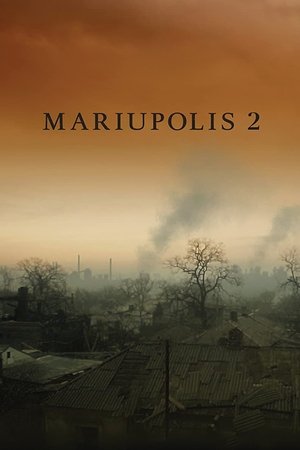 8.5
8.5Mariupolis 2(ru)
In 2022, Mantas Kvedaravičius went back to Ukraine, Mariupol, at the heart of the war, to be with the people he had met and filmed in 2015. Following his death, his producers and collaborators have put all their strength into continuing transmitting his work, his vision and his films. Also a PhD in anthropology, Mantas Kvedaravičius wished to testify as a filmmaker as far as possible from the agitation of the media and the politicians. With huge force and sensitivity, Mariupolis 2 depicts life as it continues amidst the bombing and reveals images that convey both tragedy and hope.
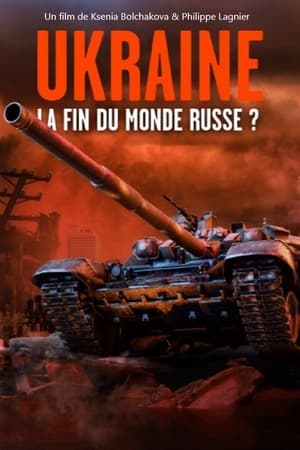 7.0
7.0Ukraine : la fin du monde russe ?(fr)
By invading this "state fiction" that is, according to him, Ukraine, Vladimir Putin takes up the motto of the tsars: "sovereign of all Russia, the great, the small and the white". The first would have Moscow as its capital, the second, kyiv, and the last, Minsk.
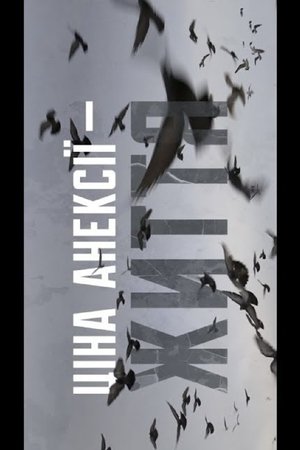 0.0
0.0The cost of annexation is life(uk)
The film is about how the occupation has changed and sometimes broken the lives of people living on the peninsula. Hromadske journalist Natalia Humeniuk arrived in Crimea on the day of the so-called ‘referendum’ on 16 March 2014, where she talked to people in Bakhchisarai, Simferopol, Yalta and Sevastopol. Since then, the journalist has returned to the peninsula at least once a year: she talked about the first political prisoners, the beginning of repressions against Crimean Tatars, the economic conditions and everyday life of the residents of the occupied Crimea, and what it was like to be a Ukrainian in the occupied Crimea or even an activist of the ‘Crimea is ours’ movement who began to criticise the occupation administration. After 5 years, Hromadske journalists returned to the people whose stories were told in the first months of the annexation.
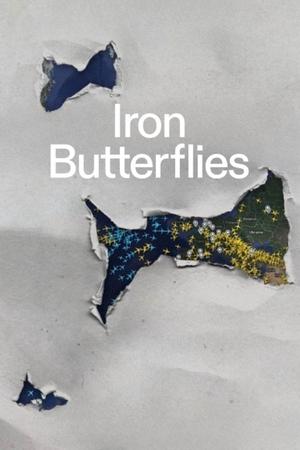 10.0
10.0Iron Butterflies(uk)
This lesson in political revelation focuses on the shooting down of the Malaysian passenger jet MH17 over eastern Ukraine in 2014. A meticulous, investigative exposé that lays bare the mechanisms of Russian warfare.
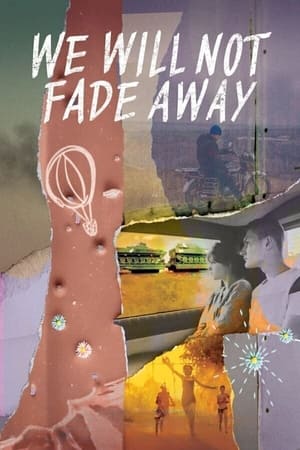 7.7
7.7We Will Not Fade Away(uk)
For five teenagers living in the conflict-ridden Donbas region of Ukraine, a Himalayan expedition provides a brief escape from reality. A portrait of a generation that, in spite of everything, is able to recognise and celebrate the fragile beauty of life.
 0.0
0.0Berehynia – Women of Kyiv(uk)
In Kyiv, the editorial staff of ELLE Ukraine, continue to publish the famous fashion and beauty magazine despite the war surrounding them.
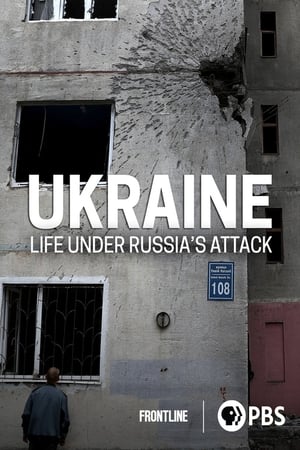 0.0
0.0Ukraine: Life Under Russia's Attack(en)
A look inside the Russian assault on Ukraine's second-largest city, Kharkiv, told by displaced families, civilians caught in the fight and first responders.
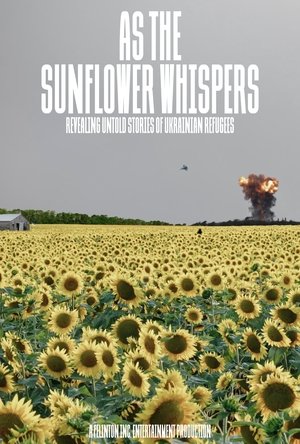 9.0
9.0As the Sunflower Whispers(en)
As the Russian invasion begins, a dedicated group from Huntington, West Virginia-teachers, students, and community members united as MUkraine-embarks on a mission to share the untold stories of Ukrainian refugees. Through a powerful podcast featuring untold stories, including interviews with front-line workers, journalists, and families directly impacted by the war, they bring the realities of the conflict to life and give a voice to those affected.
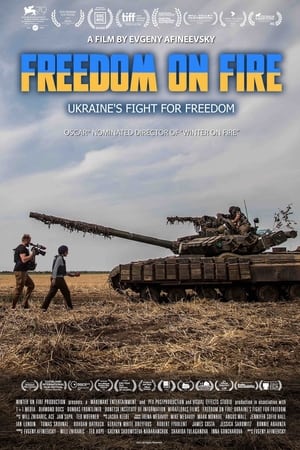 9.3
9.3Freedom on Fire: Ukraine's Fight For Freedom(uk)
Personal stories from civilians, children, soldiers, doctors, the country’s elderly, journalists, religious leaders, and international volunteers - a handful of the millions of people whose lives have been turned upside-down by nine years (and counting) of Russian aggression against Ukraine.
Putin's Obsession: The Fight For Ukraine(en)
A profile of Putin, exploring his complicated relationship with Ukraine. Why does this neighbouring nation threaten his power and identity?
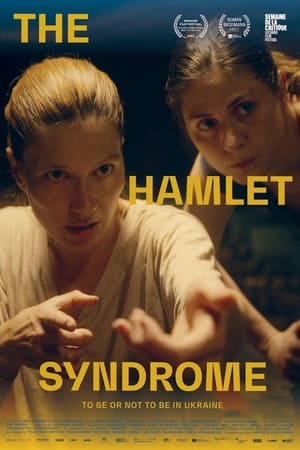 8.0
8.0The Hamlet Syndrome(de)
Five young Ukrainians discuss life following the Maidan Revolution of 2014. Not all fought in the Russian-Ukrainian war, but it, regardless, shattered their life plans. Representing 'Generation Maidan', they face the question of how to cope with experiences of violence, how to go on. A local theatre director produces Hamlet, wherein they can use Shakespeare’s tragic character as a mirror and face their traumas onstage. For them, 'to be or not to be' is not simply text but an existential dilemma with no clear answer.
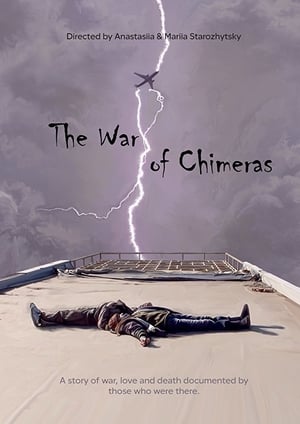 8.0
8.0The War of Chimeras(uk)
The story of war, love and death that was documented by the immediate participants of events. Off screen and later on it are the two - a boy and a girl. He volunteered for the front; she went to the place just after the battle. He got into Ilovaysk cauldron, lost his closest brother-soldiers. She, while travelling along the ruined towns, strives to understand the essence of war and love. Both tell openly one another about their feelings during the war, escaping the cauldron, a try to live together after, and a common trip to the frontline.
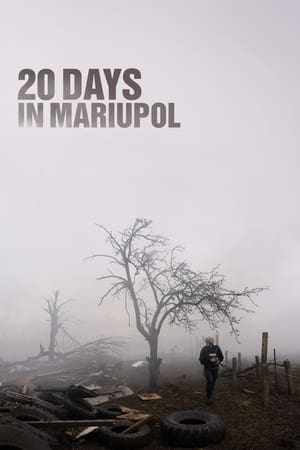 8.0
8.020 Days in Mariupol(en)
As the Russian invasion begins, a team of Ukrainian journalists trapped in the besieged city of Mariupol struggle to continue their work documenting the war's atrocities.
